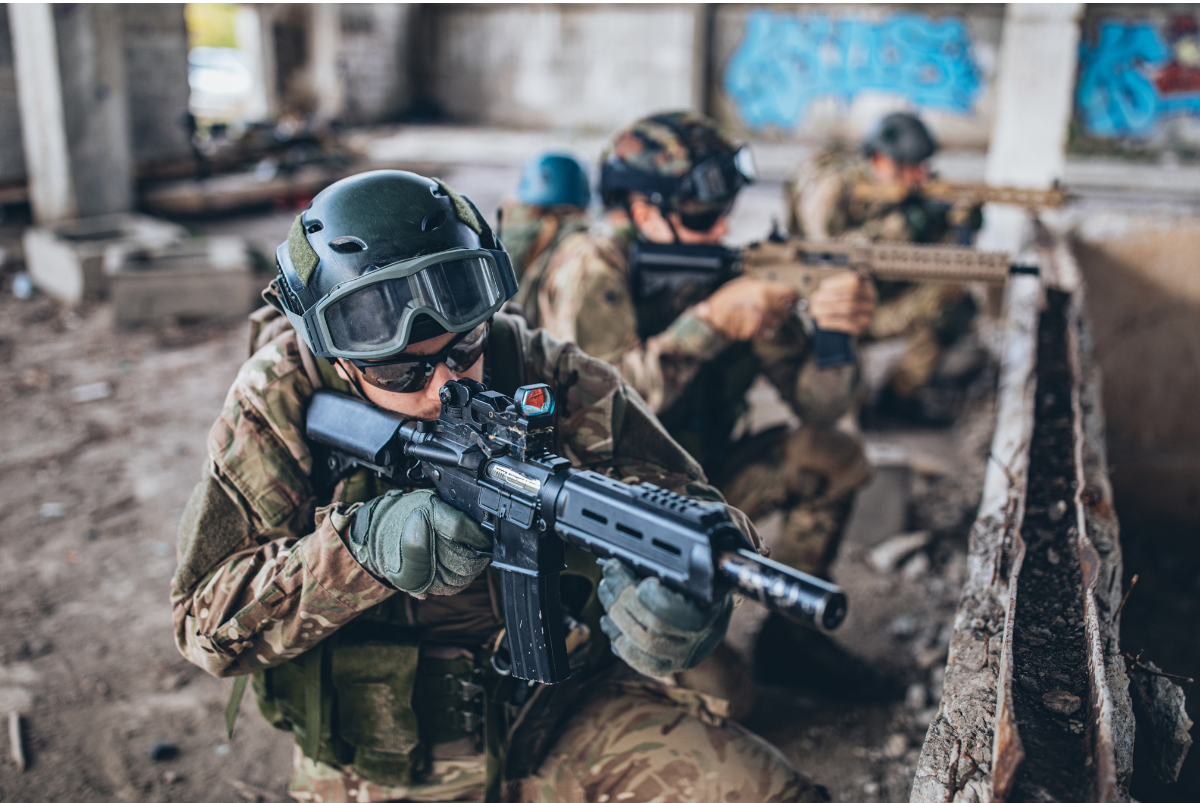4 Things the Military Wants You to Know About Sleep
The military takes the physical and mental health of its soldiers very seriously, and for good reason; it wouldn’t be able to function if its fighting forces weren’t in peak condition and firing on all cylinders.
We’re all for following the military’s guidelines for greatness… And it may come as a surprise, but aside from all the grueling PT and psychological training they focus on, the military actually has a strong view on sleep too.
They’ve worked out the sleep requirements of their soldiers with military precision - right down to the nitty gritty scientific details of how much you need, when, and why.
Here’s 4 things the military wants you to know about sleep, and why you shouldn’t put it on the backburner:
4. Adequate Sleep = Testosterone for Recovery

For starters, don’t believe the boot camp hype that you’ll never sleep again when you join the military. Sleep is crucial for performance and recovery, so the military carves out enough time to ensure that adults can get between seven and nine hours of sleep per night.
They know that during times of stress or increased physical load, sleep must also increase. In a study of soldiers getting less than 4 hours of sleep a night, their combat effectiveness was reduced by a massive 15-25%. This lack of sleep also depletes testosterone, which is critical for muscle repair after a strenuous mission.
Not only that, but long-term mental health can be affected too, with sleep-deprived soldiers displaying reduced cognitive function and a lowered ability to handle basic tasks. To stay on the ball, soldiers need to get plenty of zzz’s for peak physical and mental performance, and you should too.
3. “Adequate” Sleep Means Something Different During Missions

That said, the military also knows that there are times when a full night's sleep is just not possible. Whether it’s during a combat mission for service members, or approaching crunch time at work for civilians, there will be occasions when we must function on less sleep than is ideal.
During basic training, recruits are regularly subjected to shorter sleep allowances, often only four to six hours per night. They’re also woken up on occasion, disrupting their circadian rhythms. This short-term sleep deprivation is intended to push soldiers to their physical limit and teach them about their maximum capabilities. But the military also knows that this is not sustainable, and they don’t recommend broken sleep patterns for more than a short period of time.
It’s critical that all soldiers follow good sleep hygiene during their regular schedules, and that means the same for us in the civilian world. Do like our country’s formidable fighting forces do, and develop a consistent sleep schedule, with an effective bedtime routine, in a quiet sleep environment.
2. Sleep Deprivation is Dangerous

Whether you’re in the military or the civilian workforce, long-term sleep deprivation can be very dangerous. It can lead to serious symptoms like daytime drowsiness, irritability, impaired concentration, longer reaction times, depression, and much more.
Suffice it to say that all of those symptoms are bad news for any military unit that needs to operate at peak efficiency, and bad for civilians trying to succeed in their daily lives.
Making sure you get enough sleep every night to fulfill your duties is vital if you want to stay in the military and be promoted regularly, and to keep on climbing your own ladder in civilian life. Even if you’re young and feel like you have tons of energy, schedule time for quality sleep every night so you can crush your duties the next day.
1. “Banking” Sleep & Tactical Naps

The military will also teach soldiers to “bank” sleep, which is a method that can be used in the civilian world if you’ve got a deadline or a hectic schedule looming. In a nutshell, this means sleeping extra ahead of time when you know you’ll be facing a short timeframe of sleep deprivation.
For example, if soldiers know they’ll be going on a mission away from your base for a week, their CO or commanding officer might order them to bank their sleep by sleeping for 10 hours or so for the three nights preceding the operation.
In this way, it’s possible to build up some extra sleep and be more able to fulfill your duties while you are deprived of sleep during your mission.
Another way to bank sleep is to take a “Tactical Nap”, where you grab a quick 20 minute nap during a lull in the afternoon to refresh your mind and give your body a break. These are encouraged in the military in the hopes of helping soldiers get closer to their daily sleep requirement, and this technique can also be leveraged by busy folks between meetings if you work from home.

All in all, the military has a reputation for disregarding the sleep needs of its personnel. But nothing could be further from the truth. Sleep is very important for the military and it’s something you should take seriously in your daily life, no matter what kind of mission your path finds you on.
Thanks for reading,
Justin | MME Workout Contributor


Fuel Your Fire the WARRIOR WAY
Specially developed to create new muscle fibers post workout, this great-tasting, hard-working supplement contributes to muscle mass growth & maintenance while boosting bone health. Get yours today to redefine your workout gains the Warrior Way.
